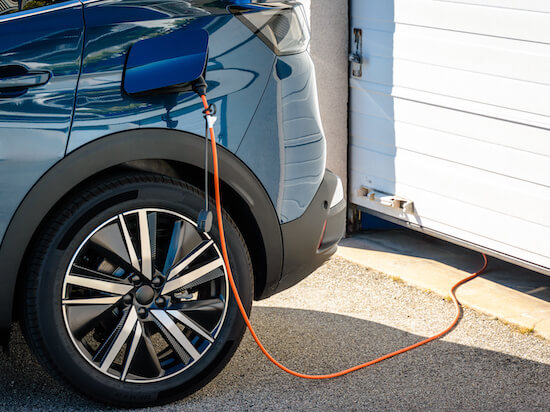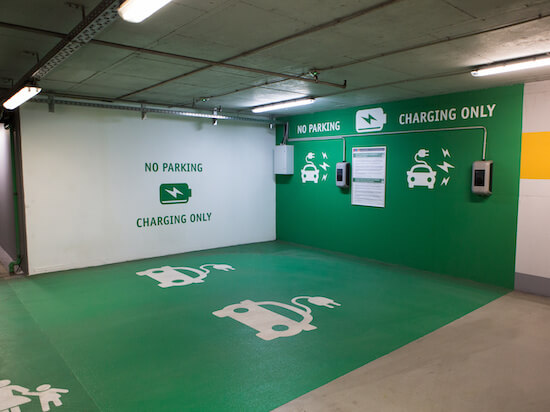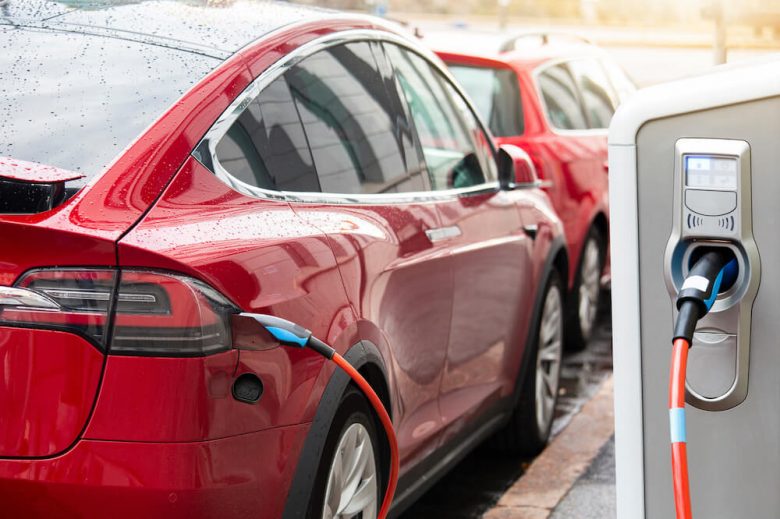As electric vehicles become more popular in the U.S., there’s a true concern for how to make up for the lost revenue from states’ gasoline tax. For over three decades, the federal government and all 50 U.S. states impose gas taxes to fund their road improvements, bridge and tunnel constructions, highway repair and maintenance, and more infrastructure projects.
Use eTags© to Quickly Complete Your DMV Service. Renewals, Title Transfers and More, All Online!

Currently, the federal government charges an 18-cent tax per gallon of gasoline and a 24 cent tax per gallon of diesel. On the states’ side of things, the average gasoline tax is 31 cents a gallon. However, state gas tax ranges from as little as 9 cents in Alaska to 65 cents a gallon in California.
Oregon became the first state to adopt a gas tax in 1919—at 1 cent per gallon
Some states allocate fees for EV support specifically
As of the end of July 2022, 30 states impose a special registration for fully electric vehicles as well as plug-in hybrid vehicles (PHEVs). Certain states like Illinois and Ohio enacted special tag fees as early as 2019 for these types of zero-emission vehicles and have amended them since. While most funds just like the gas tax go to support a variety of infrastructure projects, some states allocate a part of the revenue to support specifically EV infrastructure. For instance, Washington earmarked $75 in 2010 for supporting charging stations. Colorado allocates $20 of the $50 registration fee for EV support.
EV sales account for less than two percent in the U.S., with over 164,000 plug-in electric cars sold during the first eight months of 2020
Added registration fees for EV owners range from $50 to $200 annually
The National Conference of State Legislatures shared a list of all states that require extra registration fees for driving electric vehicles and plug-ins. For most, these special annual fees are to counteract the declining gas tax revenue that helps fund upkeep for highways and other projects mentioned above. One thing to remember is that these fees are additional; they’re on top of what you’re already paying annually to drive on public roads.
SEE ALSO: CAN AMERICA’S ELECTRIC GRID HANDLE THE ELECTRIC REVOLUTION

Some states have flat additional fees while others have tiered ones depending on the weight of the vehicle like Oklahoma which charges $110 for EVs under 6,000 pounds
States charging less than $100 fee for zero-emissions vehicle
• Colorado imposes an extra fee of $50 for EV and plug-in hybrid vehicles drivers, and deposits 40% of that revenue to the EV Grant Fund while the other 60% goes to the Highway Users Fund
• Minnesota requires $75 extra every year from all non-hybrid electric vehicle drivers and deposits the EV revenue portion in the Highway User Tax Distribution Fund
• Missouri, like the Land of 10,000 Lakes state, has a $75 annual fee on EVs, and $37.50 on PHEVs for vehicles up to 18,000 pounds

• Nebraskans also have an additional yearly fee of $75 for EV registration or what the state likes to call “alternative fuel vehicles”
In 2019 Utah started charging only $60 extra for electric vehicles, but today it’s $120
• Virginia imposes fees of $64 per year; revenue is placed into the Highway Maintenance and Operating Fund for specific district transportation purposes
States imposing over $100 more for EV registration
• California, the state with the most electric vehicle adoption, requires drivers $100 per year for a zero-emission vehicle model year 2020 or later. CA deposits revenue in the Road Maintenance and Rehabilitation Account. Yearly increases are indexed to the consumer price index.
• Georgia has an extra fee of $200 for EVs but not PHEVs unless owner demands an alt-fuel plate
• Idaho imposes an extra annual registration fee of $140 for electric vehicle drivers and $75 for plug-in hybrid vehicles
• Illinoians who drive an EV pay an additional $100, but before 2020 the electric vehicle registration fee could not exceed a $35 biennial rate, or $18 per year

Washington’s extra annual tag fees for EVs started out at $100 a decade ago
• Indiana prices their extra EV tag fee at $150, while PHEVs and hybrids are at $50
• Michigan requires $135 extra per year for non-hybrid EVs less than 8,000 pounds and $235 for over 8,000 pounds. For hybrids, the additional registration fee is $47.50 and for PHEVs it’s $117.50. These may increase gradually, depending on Michigan’s state gas tax
• Mississippi charges $150 on electric vehicles and $75 for hybrids, but these extra tag fees are indexed for inflation
• North Carolina imposes $130 on both EVs and plug-ins, while South Carolina charges zero-emission vehicle drivers $120 biennial for EVs and $60 for hybrids

• Oregonians pay $110 more per year, but various sources online show fees of up to $316 depending on county and more
• Tennessee has a flat fee for EV drivers of $100 extra every year
• Utah charges $120 more for electric vehicle drivers, $20 for hybrid drivers, and $52 more for PHEVs. (This year, increases are indexed to the CPI like CA.)
Gas taxes, funds about 30% of transportation spending in the U.S.
• Washington has an additional $150 per year for all EV registrations
• Wisconsin, America’s Dairyland, required electric vehicle drivers to add $100 to their registration fees
For more details about EV registration fees, you can dive deeper on the NCLS website
Should you need to renew your EV registration, you can do it all online with just a few clicks on eTags.com








